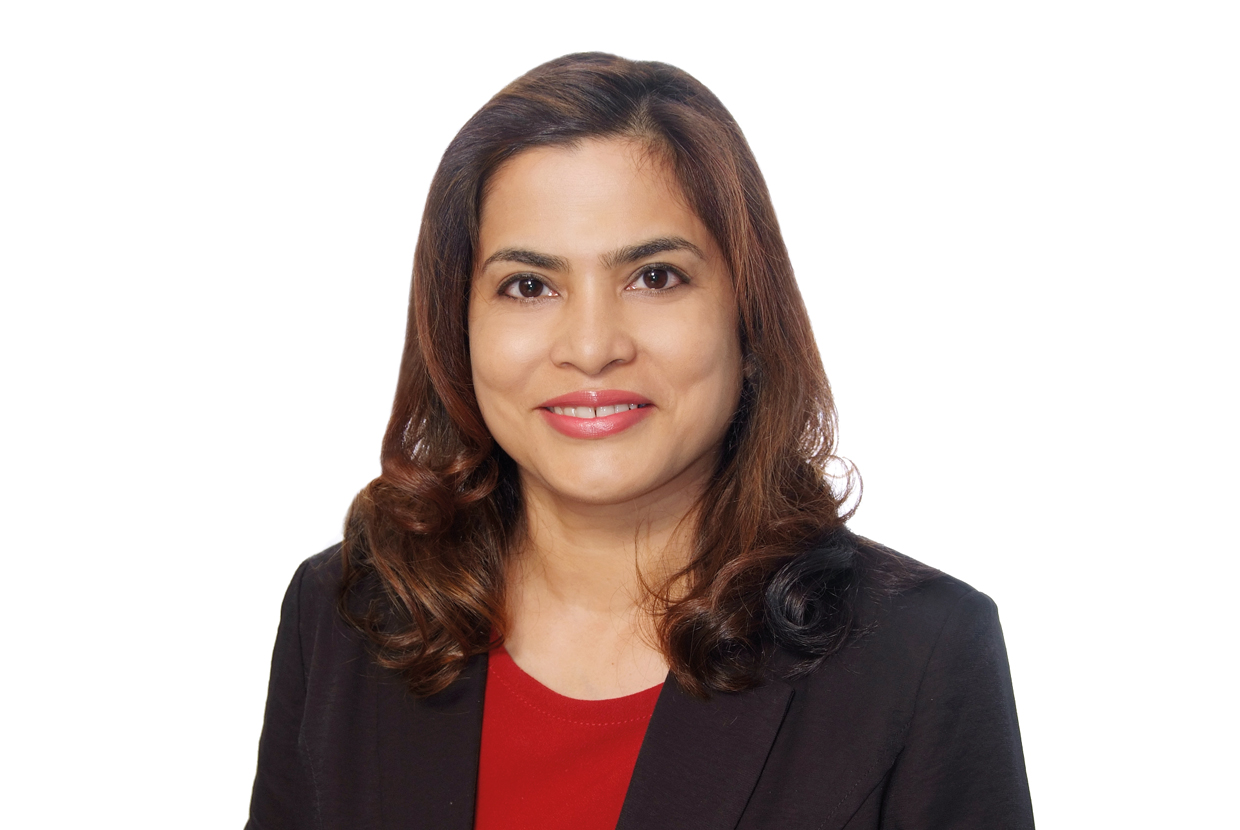Having excelled in her professional life, Sonal Priyanka, head of trade for Southeast Asia, India and the Middle East at Société Générale, now advocates for women in leadership positions, as she knows how hard it can be to make it to the top in the male-dominated financial services industry. She speaks to Maddy White about her story.
Sonal Priyanka is an inspiring individual, particularly when it comes to supporting equal opportunities. This she achieves by leading by example at work – both in terms of her own actions and the initiatives that she’s involved in. But her working environment has not always been supportive of her efforts.
“I grew up in a small town in the east of India,” she tells GTR. “My initial experience in India was very different to how it is now in Singapore. When I worked in the banking sector there it had much lower levels of female participation, and at mid-to-senior management levels, women were largely absent.”
Encouragingly, Priyanka says things have changed and she now sees many more women working within banking. But, she adds, “what I also see is that at a certain level it starts falling off. We need to set good role models, and women shouldn’t think they need to be a certain way in order to reach the top.”
Priyanka studied in India, joining the banking industry in 1998 after finishing her MBA. She worked at Citibank and GE Capital, before moving to Singapore in 2005 with her husband. She says that moving was a “tough transition”, but after the initial culture shock there was no reason to look back.
“The transition from India to Singapore carried risks for me as I had no international educational background or experience, and to that extent, finding a suitable role that would be in line with my career ambitions was tough. Singapore is also a big financial centre with large pools of existing talent which was hard to compete with,” she says.
But the move paid off for Priyanka, and her first role in Singapore – and exposure to trade finance – was at HSBC. She spent five years at the bank and then moved to Bank of America where she was head of trade and supply chain finance for Southeast Asia, before joining Société Générale in 2014.
Women winning
Société Générale is focused on generating a more diverse and gender-balanced workplace. Of the four employee-led diversity and inclusion focused networks run by the bank’s Asia arm, one focuses on gender diversity, which Priyanka jointly heads up in Singapore. The network aims to roll out the initiatives needed to meet the bank’s goal of continuously providing opportunities to elevate women in the organisation.
“I am part of the gender diversity chapter to promote a more gender-balanced workplace. But, I believe as well as initiatives and goals, in order to drive change, one has to be the change,” she says.
She explains that one of the key issues that contributes to the lack of women in mid-to-senior management roles in banking is related to having children. “Creating a balance between office and home life is important to encourage women to stay on and progress in the workplace. But if I don’t demonstrate it in my own behaviour, I cannot expect the people working with me to believe that it’s possible. So, for example, even on the toughest day, I will pack up at the office in time to spend quality time with my family,” she says.
Priyanka’s advice to other women trying to get to the top is to specialise within their chosen fields. This, she says, has certainly encouraged her own progression. The second thing is taking risks. While moving countries was difficult, both professionally and personally, she says that stepping outside of one’s comfort zone often advances a career much faster – as she believes it did in her case.
“Women must take risks as it speeds up the process of reaching leadership positions earlier on in life, meaning they don’t have to wait for these opportunities that may or may not arise later. Women need to take those risks to be recognised and rewarded for their ability to do so,” she says.
Priyanka’s tone – like her future – is bright, as she says: “I will continue to promote and support trade finance. It is something that makes a difference to economies, companies and people. If I am no longer working for the banking sector in the future, then perhaps I can help companies get better access to trade finance.”







